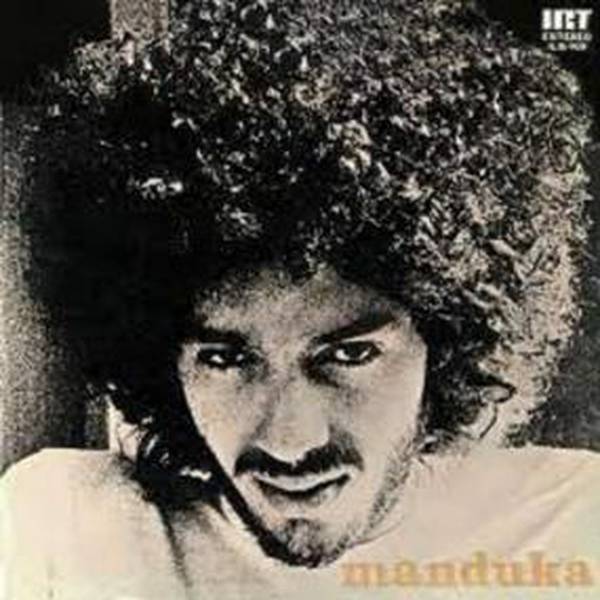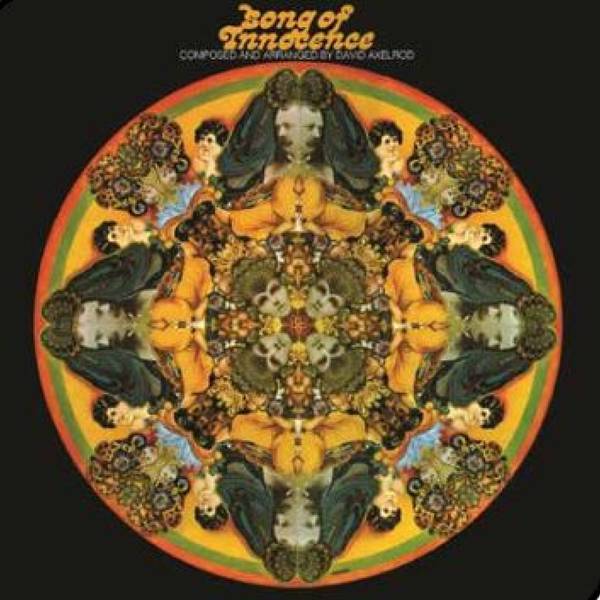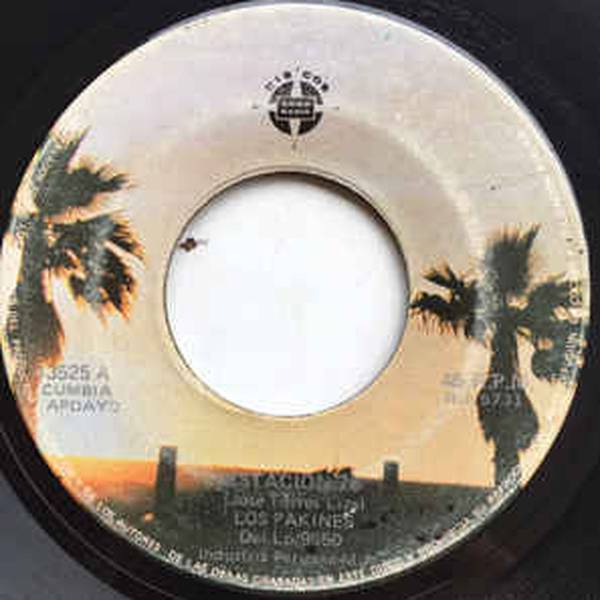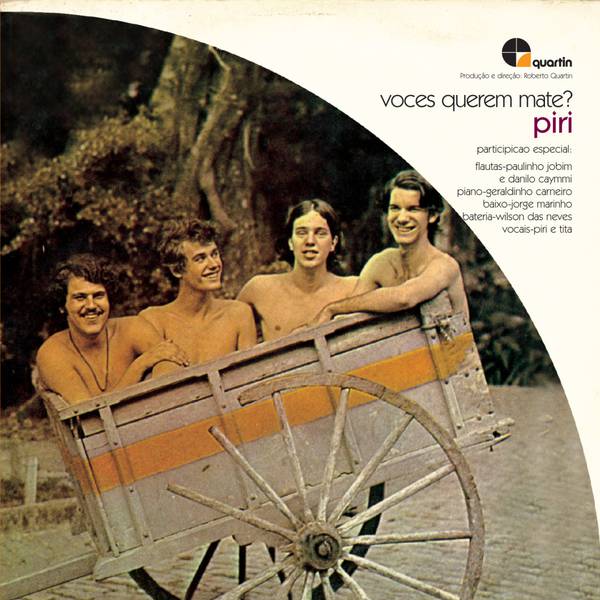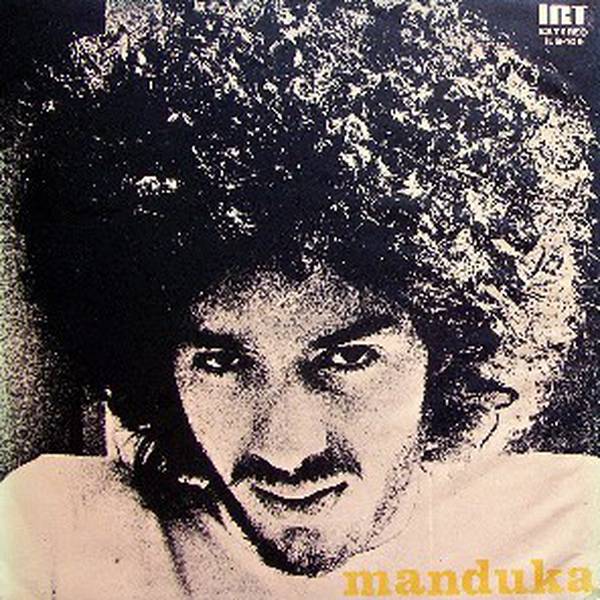
Tax included, Shipping not included
It may come as a surprise to many to know that the psychedelic rock and folk movement of
the late 60s and early70s was not confined to the USA and Europe. In fact, the massivecultural upheavals of the 1960s had spread far and wide and by 1967-68, musicians, artistsand writers across the world were exploring new ways to express themselves. This was noless the case in South America and it was during the late 60s and early 70s that an explosion of psych rock and folk produced amazing music that still inspires half a century
later. The most well-known and celebrated South American movement from this era was Tropicália (also known as Tropicalismo), a Brazilian artistic movement that arose in the late 1960s that embraced music, poetry, visual arts and theatre.
Musicians who were part of the movement include Caetano Veloso, Gilberto Gil, Os Mutantes, Gal Costa, and Tom Zé. But it wasn't just Brazil that experienced a flowering of artistic freedom. Chile too had a movement called la Nueva Canción Chilena (Chilean New Song), a movement that captivated and elated a country during a period of social change. This was a powerful musical style that combined poetic lyrics with a haunting mix of traditional native wind and stringed instruments. It was born of and expressed the aspirations of a rising social class
and political consciousness concerned with social justice and freedom. It was a time in which psychedelic rock and folk bands of the late ’60s and early ’70s like Los Blops, Los Jaivas, Aguaturbia, El Congreso, and Congregación mixed American and European rock with native Chilean and other South American forms. However, by 1973, the creative freedoms expressed by Chilean musicians, poets, writers and artists was abruptly curtailed
when there was a violent CIA-backed military coup that overthrew the socialist government of Salvador Allende and installed the fascist dictator General Augusto Pinochet. The event caused many leading figures of the political opposition to be arrested, imprisoned and tortured. Thousands disappeared and were killed. In the context of such violent suppression and intimidation, many musicians sought asylum in neighbouring countries or
even further afield, like the USA or Europe. One such musician and writer was Alexandre Manuel Thiago de Mello, otherwise known as Manduka.
Manduka was born in 1952 in Brasil, the son of the journalist Pomona Politis and the poet Thiago de Mello, and nephew of the musician Gaudêncio Thiago de Mello. At the age of 18 he moved with his family to Chile, ostensibly to escape the increasingly oppressive atmosphere of the military government in Brazil. Just as many members and supporters of the New Chilean Song movement would soon go into exile after the 1973 coup, Manduka had escaped one
dictatorship in Brazil to go and live in Chile, very soon to experience its own military
crackdown. Manduka became involved with the Unidad Popular, a left-wing political
alliance in Chile that stood behind the successful candidacy of Salvador Allende in the 1970 Chilean presidential election. During this time, Manduka also established close ties with important Chilean artists and began to foster interesting musical ideas, mixing his Brazilian heritage with the Chilean culture he found himself rapidly absorbing. In 1971, Manduka was still only nineteen years old and he was already a leading figure in the local left intelligentsia (his father was very close to notable figures such as Pablo Neruda and Violeta
Parra, a musician who set the foundation for Nueva Canción Chilena) and was close to other exiled Brazilians, particularly the singer-songwriter Geraldo Vandré. It was with Vandré that Manduka co-wrote his first songs, quickly making a name for himself with 'Patria Amada Idolatrada Salve Salve', sung by Venezuelan singer Soledad Bravo, winning a prize at the 1972 Festival of Aguadulce, held in Peru. Upon his return to Chile, Manduka
received an offer from Julio Numhauser to record a record. Numhauser was a key member of the Nueva Canción Chilena movement and founder member of the influential folk music groups Quilapayún. He was also artistic director of the IRT label and the result was an LP composed almost entirely by Manduka, with songs and improvisations that, somewhat inevitably, alluded to exile, Brazilian history and his own encounters with Chilean culture.
The resulting album, 'Manduka' was released in 1972 and featured vocalist Soledad Bravo along with contributions from some of the leading progressive folk and rock musicians in Chile at the time including Numhauser himself, Patricio Castillo (a close friend and creative partner of political activist, poet and singer Victor Jara), Baltasar Villaseca of leading Chilean psych folkrock group Congregación, and the brothers Gabriel and Eduardo Parra,
from popular folk rock group Los Jaivas. The album is a wonderfully fresh and exciting collection of sounds that fizz with energy and hope; one minute a lilting folk ballad, the next an up tempo foot stomping attack on the acoustic guitar. It is the sound of a creative mind at the centre of a flourishing artistic movement just months away from being crushed.
After the coup in September 1973, many of the leading figures in the Chilean music scene fled for their lives. Those that stayed payed a heavy price. An associate of Manduka, Victor Jara, was a key figure in the Nueva Canción Chilena movement. Soon after the coup, he was arrested and tortured. The guards smashed his hands and fingers, and then mocked him by asking him to play the guitar. He was then killed with a bullet to the head, and his corpse riddled with more than 40 bullets wounds. His body was put on display at a sports
stadium as a warning then thrown out on the street of a Santiago shantytown. The stark contrast between the themes of his songs— love, peace, and social justice—and the brutal way in which he was murdered transformed Jara into a potent symbol of struggle for human rights and justice for those murdered during the Pinochet regime. This was the political context in which Manduka found himself and he had no choice but to flee to
Argentina with members of Los Jaivas. In the years that followed, Manduka would continue
to wander the world, living and working in Venezuela, Germany, France, Spain and Mexico, publishing records and books, scoring films, and collaborating with artists such as Naná Vasconcelos and Pablo Milanés. Manduka returned to Brazil in 1988 where he remained until his death on October 17, 2004, due to cardiovascular complications.
Details
Genre
Release Date
15.03.2018
Cat No
SS-008
Produkt- und Herstellerinformationen
Tracklist
Track 1
Track 2
Track 3
Track 4
Track 5
Track 6
Track 7
